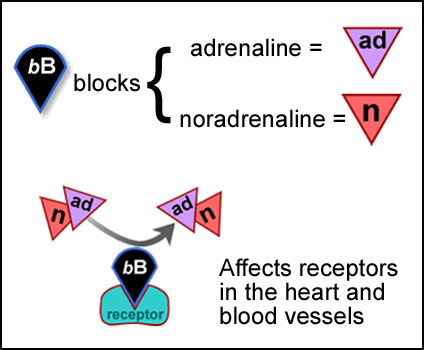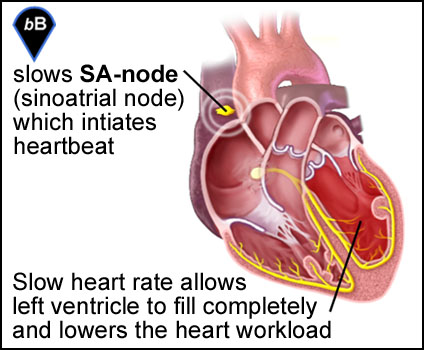
Beta Blockers
Beta Blockers are drugs that slow the heart rate, decrease cardiac output, lessen the force with which the heart muscle contracts, and reduce blood vessel contraction. They do this by blocking beta-adrenergic receptors in various parts of the body. This prevents adrenaline (epinephrine) and noradrenaline (norepinephrine) from stimulating these receptors. They may be used to treat abnormal heart rhythms (arrhythmias) and prevent abnormally fast heart rate (tachycardia) or irregular rhythms such as premature ventricular beats. Since they reduce the demand of the heart muscle for oxygen they may be useful in treating angina (chest pain), which occurs when the oxygen demand of the heart exceeds the supply. They have become an important drug in improving survival after heart attacks. Beta-blockers are also used to treat high blood pressure and other heart conditions.
Some Beta Blockers that are available are: Acebutolol, Atenolol, Betaxolol, Bisoprolol, Carteolol, Labetalol, Metoprolol, Nadolol, Oxprenolol, Penbutolol, Pindolol, Propranolol, Sotalol, Timolol.
Figure 1: Beta Blockers
Figure 2: Beta blocker block adrenaline and noradrenaline.
Figure 3: Beta blockers slow the heart rate.
Figure 4: Beta blockers dilate blood vessels.
Visit Medmovie.com Website for more information.



